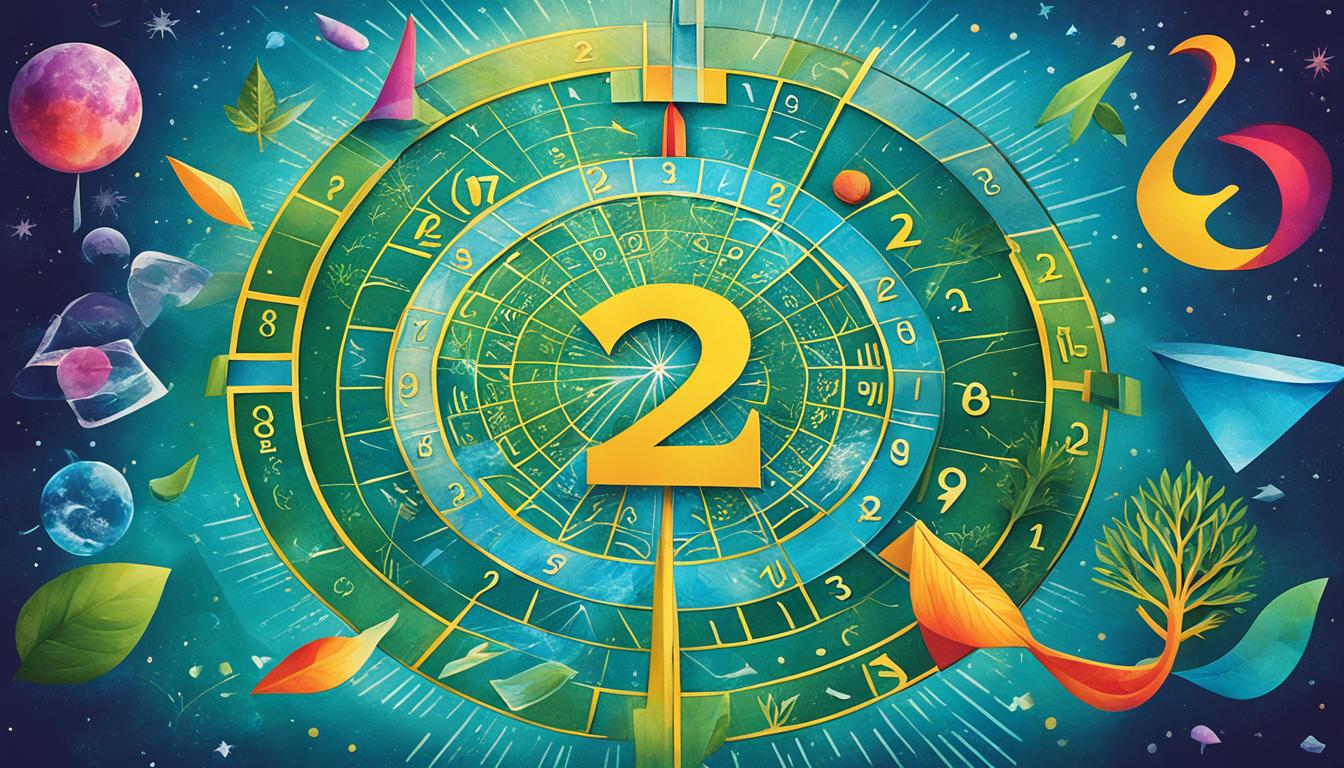There’s nothing quite like the sensation of soaring through the skies, weightless and free. It’s a feeling that many of us long for in our waking lives, but it’s also one that we can experience in our dreams. Dreaming of flying is a common occurrence, and it can be a truly exhilarating and transformative experience.
In this article, I’ll be exploring the fascinating world of flying dreams. We’ll delve into the meaning and symbolism behind these dreams, and we’ll take a look at the science and psychology that underpin them. We’ll also explore techniques for having and enhancing flying dreams, and we’ll touch upon related dream themes and their significance. Whether you’re a seasoned dreamer or simply curious about the mysteries of the unconscious mind, there’s something for everyone in the world of flying dreams.
Key Takeaways
- Dreaming of flying is a common occurrence that can be a thrilling and transformative experience
- We’ll explore the meaning and symbolism of flying dreams, as well as the science and psychology behind them
- Techniques for enhancing flying dreams will be discussed, as well as related dream themes and their significance
Unraveling the Meaning Behind Flying Dreams
As someone who has experienced numerous flying dreams, I have always been fascinated by their symbolism and meaning. Dreams involving flying can be exhilarating, liberating, and even mystical. But what do they really mean?
According to psychologists and dream experts, flying dreams are often associated with feelings of freedom, control, and empowerment. They can signify a desire to escape from your daily routine, to release pent-up emotions or stress, or to explore new perspectives and opportunities.
However, the symbolism of flying dreams can vary depending on the context and emotions of the dreamer. For example, if you feel scared or out of control during your flying dream, it may indicate a fear of change or uncertainty in your waking life. On the other hand, if you feel joy and excitement during your flying dream, it may suggest that you are ready to take risks and pursue your passions.
Interpreting Flying Dreams
There are several techniques you can use to interpret your flying dreams and uncover their deeper meaning. One common approach is to keep a dream journal, where you record your dreams and analyze common themes, symbols, and emotions. You can also try visualization exercises, such as imagining yourself back in the dream and exploring different scenarios and outcomes.
It is important to remember that the interpretation of dreams is highly personal and subjective. What may mean one thing to someone may mean something entirely different to someone else. Trust your own instincts and intuition when interpreting your dreams, and seek the guidance of a professional if you feel confused or overwhelmed.
“Flying dreams often reflect our desire to rise above our problems and achieve greater heights of success and fulfillment.”
Joe, Montana
Whether you believe in the spiritual or psychological significance of flying dreams, there is no denying their impact on our subconscious minds. They can inspire us, challenge us, and help us to see the world from a different perspective. By understanding the symbolism and interpretation of flying dreams, we can unlock their full potential and use them to improve our waking lives.

The Psychology of Flying Dreams
Have you ever wondered why we dream about flying? Flying dreams are quite common and can be exhilarating, but what could possibly be the underlying psychological reasons behind them?
One potential explanation is that flying dreams symbolize a desire for freedom and liberation. The act of flying can represent a sense of escape from the challenges and stresses of daily life.
Another theory is that flying dreams reflect a desire for power or control. These dreams may give the dreamer a sense of superiority or invincibility, as they are able to soar above everything else.
In some cases, flying dreams can also be interpreted as a reflection of one’s self-confidence and belief in their own abilities. The ability to fly may represent a feeling of self-assurance and a belief that one can conquer any obstacle.
The Role of the Unconscious Mind
Flying dreams are often associated with the unconscious mind, where our deepest desires and fears reside. The unconscious mind may use the act of flying to symbolize a variety of emotions and desires that we are not consciously aware of.
For example, the fear of falling can be a common theme in flying dreams. This fear may represent a fear of failure or a lack of control in one’s life. Alternatively, the action of flying itself can be seen as a way to overcome that fear and gain a greater sense of control.
Overall, flying dreams can be a fascinating and insightful look into our subconscious desires and fears. Whether you interpret them as a desire for freedom, power, or self-confidence, one thing is certain: Flying dreams are a window into our deepest selves.
Lucid Dreaming: Taking Control of Your Flying Adventures
Have you ever wished you could control the direction of your flying dreams? With lucid dreaming, you can!
Lucid dreaming is a state where you become aware that you’re dreaming, and can take control of your dreams. By practicing lucid dreaming techniques, you can learn to fly at will, manipulate the environment, and have even more exhilarating experiences.
Here are some tips to get started:
- Set your intention: Before going to sleep, set a clear intention to become aware of your dreaming state. Say to yourself, “Tonight, I will realize that I’m dreaming.”
- Reality checks: Throughout the day, do reality checks to see if you’re awake or dreaming. Look at your hands, try to push your finger through your palm, or pinch yourself. If you make this a habit, you’re more likely to do it in a dream and realize it’s a dream.
- Keep a dream journal: Write down your dreams as soon as you wake up. This will help you recognize common themes and patterns, and become more aware of when you’re dreaming.
- Visualize: Visualize yourself flying in your dreams before going to sleep. Imagine the sensation of flying and how you will control it once you’re aware you’re dreaming.
Once you’re able to become aware of your dream state and take control of your flying adventures, the sky’s the limit!
The Thrills and Experiences of Flying Dreams
My flying dreams have taken me on some of the most exhilarating adventures of my life. I’ve flown over mountains, soared through clouds, and even glided through bustling city streets. The feeling of weightlessness and freedom is undeniably thrilling, and it’s no wonder that so many people relish in their flying dreams.
Some of the most common experiences people report during their flying dreams include:
- Feeling a sense of liberation and empowerment
- Experiencing a rush of adrenaline and excitement
- Feeling a sense of peace and calmness
- Encountering obstacles and challenges to overcome
- Experiencing a connection to nature and the world around them
During my flying dreams, I’ve encountered all of these experiences and more. Whether I’m soaring above a vast ocean or navigating through a dense forest, each experience is unique and unforgettable.
“Flying dreams are a reminder that I am capable of overcoming obstacles and achieving my goals. The freedom I experience in these dreams inspires me to be more fearless and adventurous in my waking life.”
Dominique, Paris
I’ve heard countless stories from others who have had similar experiences during their flying dreams. Many people report feeling a sense of empowerment and unlocking new levels of creativity and inspiration after a particularly vivid flying dream.
Whether you’re an avid lucid dreamer or simply enjoy the occasional flying dream, there’s no denying the incredible experiences that can be had when taking to the skies in your dreams.
Flying Dreams Symbolism Across Cultures
It’s interesting to note that the symbolism of flying dreams varies across cultures. In Western cultures, flying is often associated with freedom and escape from constraints, while in Chinese culture, dreaming of flying can be seen as a sign of good luck and success.
Additionally, in some Native American cultures, flying dreams are believed to be a spiritual experience, representing a journey toward self-discovery and enlightenment. In Hindu culture, flying dreams can indicate the ability to rise above worldly attachments and connect with the divine.

Dreaming of Flying in Japanese Culture
In Japanese culture, dreaming of flying is seen as a metaphor for achieving goals and overcoming obstacles. The concept of tengu, a mythical creature with bird-like wings, embodies this idea. Tengu is often depicted as a wise and powerful being, capable of flying to great heights and imparting knowledge to those who encounter it in their dreams.
In some Japanese folklore, it is believed that if you dream of flying over a body of water, you will have good luck and success in your career or personal life.
Dreaming of Flying in African Cultures
Many African cultures view flying dreams as a symbol of spiritual growth and a connection to the divine. In some West African cultures, flying dreams are thought to be a sign of one’s ability to communicate with ancestors and receive their guidance.
Dreaming of flying in African culture can also be interpreted as a representation of liberation from past traumas or a release from grief and suffering.
Overall, the symbolism of flying dreams varies greatly across cultures and can be influenced by personal beliefs and experiences.
Science Behind Flying Dreams: Neurological Explanations
Have you ever wondered why we dream about flying and what causes these vivid experiences? Several neurological explanations shed light on this fascinating phenomenon.
One theory suggests that flying dreams occur during the rapid eye movement (REM) stage of sleep, which is associated with increased brain activity and heightened emotion. During this stage, the brain is thought to simulate experiences that are not possible in waking life, such as flying.
Another theory suggests that flying dreams may be related to the brain’s vestibular system, which is responsible for balance and spatial orientation. Research has shown that stimulating this system can produce sensations of flying and floating.
Furthermore, some studies suggest that flying dreams may be related to the brain’s dopamine system, which is associated with pleasure and reward. Flying dreams may be a form of reward for the brain, providing a sense of liberation and euphoria.
While there is no definitive answer to what causes flying dreams, exploring these neurological explanations can provide insight into our subconscious and the complex workings of the brain.
Flying Dreams and Astral Projection
Did you know that flying dreams can be closely linked to the phenomenon of astral projection? Astral projection is the ability to consciously leave your physical body and travel through the astral realm. It is believed that in order to achieve this state, one must first gain control over their dreaming body, which can be accessed through lucid dreaming.
During a flying dream, your mind and body are in a highly relaxed state, making it easier to enter the astral realm. Many people have reported experiencing an out-of-body sensation while flying in their dreams, which could potentially be the beginning stages of an astral projection experience.
However, it is important to note that astral projection can be a complex practice that requires discipline and training. It should be approached with caution and under the guidance of a knowledgeable practitioner.
Whether or not you are interested in exploring the world of astral projection, it is fascinating to consider the connection between flying dreams and this phenomenon. Who knows, maybe your next flying dream could be the start of a journey through the astral realm.
Enhancing Flying Dreams: Tips and Techniques
As someone who has had numerous flying dreams, I can attest to the thrill and wonder of soaring through the sky. Here are a few tips and techniques to help you enhance your own flying dreams:
- Keep a dream journal: Recording your dreams as soon as you wake up helps you remember them better and notice patterns or themes. This also helps you identify recurring dream signs that may indicate a lucid dreaming opportunity.
- Practice reality checks: Throughout the day, test if you are dreaming by performing a reality check, such as looking at your hands or trying to fly. This habit can also carry over to your dreams and increase the likelihood of becoming lucid.
- Set intentions before bed: Before falling asleep, focus your thoughts on the desire to have a flying dream and visualize yourself soaring through the sky.
- Use guided imagery: Listen to a guided meditation or visualization that involves flying, to prime your mind for a flying dream.
Additional techniques to try during your dream to enhance the experience:
- Spin around: If you feel yourself starting to lose control or fall in your dream, stabilize yourself by spinning around.
- Use your thoughts: In a lucid dream, your thoughts can influence the dream experience. Try focusing on the sensation of flying and envisioning the wind rushing past you to increase the realism of the dream.
- Explore your surroundings: Once you have mastered flying, try exploring your dream world and interacting with the environment to increase the depth and detail of the experience.
- Practice often: Like any skill, the more you practice, the better you will become. Make a habit of setting the intention to have a flying dream and utilizing these techniques regularly.
With a little practice and persistence, you too can experience the joy and freedom of flying in your dreams. Happy flying!
Exploring Other Dream Themes: Water, Falling, and More
In addition to flying dreams, there are many other common dream themes that you may experience. These dreams often contain symbolism that conveys messages from your subconscious mind.
Water Dreams
Dreams about water can be both tranquil and turbulent. If you dream of calm waters, it may signify a sense of peace and tranquility in your life. However, if you dream of rough waters or drowning, it could indicate emotional turmoil or feeling overwhelmed in your waking life.
Falling Dreams
Dreams about falling are quite common and can be unsettling. While they may often be interpreted as a fear of failure or loss of control, they can also represent a desire for change or letting go of something in your life.
Naked Dreams
Dreams about being naked in public can be embarrassing and disturbing. However, they are a common theme and can indicate a fear of vulnerability or feeling exposed. Alternatively, it could also symbolize a desire to be seen and accepted for who you are.
Teeth Dreams
Dreams about teeth falling out or deteriorating can be unnerving. These dreams are often associated with feelings of insecurity, powerlessness, or a fear of aging. They may also represent a need for change or personal growth.
Death Dreams
Dreams about death can be frightening, but they often represent significant change or transformation in your life. It could also suggest a need for closure or letting go of something in your life that is no longer serving you.
Remember, dreams serve as a powerful tool for self-reflection and understanding. Pay attention to common themes in your dreams, as they could hold valuable insights for your waking life.
Interpreting Flying Dreams: Personal Reflections
As someone who has had multiple flying dreams throughout my life, I have found them to be incredibly liberating and empowering. In my personal experience, flying dreams have represented a desire to rise above challenges and limitations in my waking life.
However, I understand that the interpretation of dreams is highly subjective and can vary depending on the individual. Even so, I believe that the symbolism of flying dreams holds valuable insights into our subconscious thoughts and desires.
When interpreting your own flying dreams, consider the emotions and sensations you experienced during the dream. Did you feel free? In control? Afraid? These emotions can provide clues into what your dream may be trying to tell you.
Additionally, pay attention to the setting and context of the dream. Were you flying alone or with others? Were you indoors or outdoors? These factors can also influence the overall meaning of the dream.
It’s important to remember that there is no one definitive interpretation for flying dreams; their significance can vary greatly from person to person. However, by reflecting on our dreams and what they may be trying to communicate to us, we can gain a deeper understanding of ourselves and our subconscious thoughts.

Conclusion: Embrace the Freedom and Wonder of Flying Dreams
As I conclude this journey into the world of flying dreams, I hope you have gained a deeper appreciation for the beauty and significance of these experiences. Whether you soar through the clouds or float effortlessly through space, flying dreams offer a sense of freedom and wonder that few other dreams can match.
Remember that the meaning and symbolism of your dreams are unique to you. While it can be helpful to explore different interpretations and theories, trust your own instincts and feelings when interpreting your dreams. Only you can truly understand the messages that your subconscious mind is trying to convey.
So the next time you find yourself flying in your dreams, embrace the sensation and let yourself revel in the magic of the moment. Whether you view it as a representation of your deepest desires, a reflection of your inner self, or simply a breathtaking adventure, there is no denying the power and allure of flying dreams.
FAQ
Q: What is the meaning behind flying dreams?
A: Flying dreams often symbolize a sense of freedom, empowerment, and transcendence. They can represent personal growth, the ability to overcome obstacles, and a desire for new experiences.
Q: Why do we dream about flying?
A: Dreaming about flying can be influenced by various factors such as personal desires, experiences, and emotions. It may reflect a longing for escape, a need for control, or a subconscious exploration of limitless possibilities.
Q: Are flying dreams common?
A: Yes, flying dreams are quite common and can occur across different cultures and age groups. Many people have experienced the exhilaration of flying in their dreams at some point in their lives.
Q: Can lucid dreaming help me have flying dreams?
A: Yes, practicing lucid dreaming techniques can increase the likelihood of having flying dreams. By becoming aware that you are dreaming while in the dream state, you can consciously choose to fly and actively participate in your dream adventures.
Q: What are some experiences people have during flying dreams?
A: People often report feelings of joy, exhilaration, and freedom during their flying dreams. Some describe exploring breathtaking landscapes, soaring through the sky with ease, or engaging in fantastical adventures.
Q: How do different cultures interpret the symbolism of flying dreams?
A: Different cultures may assign varied meanings to flying dreams. For some, it represents spiritual ascent or a connection to divine realms. For others, it symbolizes ambition, personal growth, or the pursuit of goals.
Q: Is there a scientific explanation for flying dreams?
A: While flying dreams are still not fully understood, some theories suggest that they are related to brain activity:
- A product of the release of certain chemicals during REM sleep,
- or the brain’s attempt to make sense of sensory feedback during sleep.
Q: How are flying dreams related to astral projection?
A: Flying dreams and astral projection share similarities, as both involve a sense of out-of-body experience and the ability to navigate the dream or astral realm. Some believe that flying dreams can be a precursor to astral projection or a way to explore astral dimensions.
Q: How can I enhance my flying dreams?
A: To enhance your flying dreams try to:
- Keep a dream journal,
- Practice reality checks during the day
- set intentions before sleep
- Experiment with lucid dreaming techniques such as visualization and reality testing.
Q: What are some other common dream themes?
A: Other common dream themes include water, falling, being chased, and being naked. These themes often carry symbolic meanings that can provide insights into our emotions, fears, or aspirations.
Q: How should I interpret my flying dreams?
A: Interpreting flying dreams is a personal process that requires self-reflection and consideration of your unique circumstances. Pay attention to your emotions, the context of the dream, and any recurring symbols or themes to discover their meaning.



